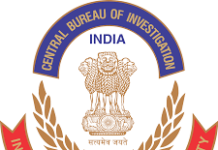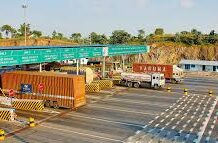 The Shesh Paul Vaid, who arranged as the chief of police force for arguably the most restive state in the country, Jammu and Kashmir, for two years, now leads a less hectic life as J&K’s transport commissioner.
The Shesh Paul Vaid, who arranged as the chief of police force for arguably the most restive state in the country, Jammu and Kashmir, for two years, now leads a less hectic life as J&K’s transport commissioner.
Vaid, a 1986 batch IPS officer, was posted as Special Director General of J&K Police at a time when the state was in the throes of a huge unrest. He took charge two months after the killing of Hizbul Mujahideen militant commander Burhan Wani in 2016.
Dozens of people were killed in protests and hundreds were injured. Life in Kashmir was thrown out of gear. On 28 December 2016, he was promoted as the chief of J&K Police. Vaid was given the top post after being credited for playing an important role in restoring normalcy in the Valley. Vaid’s experience of seeing militancy unfold first-hand probably came in handy. In 1995, having already survived an assassination attempt, he became the target of another assassination bid when around 25 militants ambushed his car leaving him severely injured.
After serving his chair for nearly two years, Vaid was transferred in September this year and posted as state transport commissioner through an order issued at midnight. This came few days after kin of police personnel were kidnapped in south Kashmir.
In his first interview after vacating the top-cop’s chair, Vaid talks to News18 about his abrupt ouster, and challenges he faced as the police chief.
How challenging was it to be appointed as J&K police chief given the huge unrest following Burhan’s killing in an encounter?
I took charge as DGP Law and Order on September 10, 2016, about two months after the Burhan incident. The Valley was in turmoil. That was a trying time. Some areas were even cut off from our reach. There was a huge law and order problem, particularly in south Kashmir areas. Lot of stone-pelting incidents were taking place and roadblocks had been setup. It was a challenge for the police to be able to visit every village. It took some time, but I think it was done systematically with the assistance of all the forces, particularly, the Army, CRPF and the SSB. Slowly, things started shaping up. But the biggest challenge was local boys joining militancy. That was a painful thing to have happened, one of the most hurtful things I saw during my tenure.
Social media was being used from across the border to instigate the youth. Jamat-ud-Dawa (JuD) declared 2017 as the ‘year of Kashmir’. They came out with an open advertisement in Pakistani newspapers saying ‘To fight Jihad you need not to go to Kashmir. You can fight sitting at home, if you have a smartphone, laptop and an internet connection’. I think because of these things, social media was misused a lot. It caused the brainwashing of young children in Kashmir, instigating them to pick up guns and pelt stones. It was a situation where terrorism was combined with mob violence. We took counter measures and fortunately stone-pelting came down by the time Governor’s rule was enforced.
In context of that period of unrest, do you have any regrets? Is there anything that you’re particularly proud of?
I feel bad for not being able to stop young boys from joining militancy, though eventually many of them were prevented from joining these outfits. In 2017, around 70 boys were saved from joining militancy and J&K police feels the satisfaction of saving those 70 families. I think 20 to 25 boys who had actually joined militancy were brought back through the appeal of their parents. That was a big achievement, though I wanted to do much more. I think even saving one life is worth it. My only disappointment will be that I did not succeed completely in stopping boys from joining militancy. If my son picks up the gun and dies in an encounter, how will I feel? I used to think as a father. Local boys joining militancy remains a big challenge in Kashmir.
Lot of arrests was also made and the police was accused of highhandedness…
Yes, we arrested people in the thousands. It was necessary to work like an administrative mercenary. Otherwise, the situation would have been even worse today. Massive radicalization took place during the time. Militants started appearing in public. There was a parade on August 14 by militants. Such were the days. Today, people may not remember how we managed it.
Do you think slapping of Public Safety Act (PSA) on young boys and jailing them really worked?
What was the option? You shoot and kill? That should not be the right option. Taking legal action against the people who were resorting to violence and detaining hardcore people who were instigating under PSA were better methods than killing people.
Some have also argued that forces killed a lot of militants who could have been taken alive. In some cases, forces have also been criticised for celebrating the killing of militants.
At the encounter sites, militants fire at us. But we use all means at our disposal to persuade them to surrender, instead of killing them. We would appeal to them and also get their families so that they could persuade them to surrender. In some cases, we did succeed. In one case in Kulgam, a militant was injured and he hid himself in a house. We lost a policeman in that encounter. But when I was told that we have found him injured, I ordered not to kill him. Ideally speaking, we didn’t want anybody to die, particularly local boys. But often there are no other options. We never celebrate the killing of militants.
Do you consider ‘Operation All Out’ a success?
Top militant commanders, who were leading all this, needed to be neutralised. It was a joint plan of forces. I think it has been successful and results are before people. Old leadership of militants was targeted and eliminated.
But there has been increase in local militant recruitment, the number of militants this year is at a 10-year high. How has the ‘Operation All Out’ been successful?
Yes, the number has been increasing. It rose in 2017 and further up in 2018. But the situation is complicated and needs to be handled in multi-pronged manner. We have no option but to kill militants. But we also need to engage the youth and create opportunities for them. I personally feel that youth in Kashmir has nothing constructive to do. The main industry of Kashmir, tourism, is in a shambles. Everyone is looking for government jobs, but there are very few of them. I think all stakeholders need to sit together and see how to engage the youth.
Why do you think you were ousted from your office? You are only the second DGP of J&K police who has been removed from the post like this.
It is government’s prerogative. I took it positively. CBI director has also been suspended (chuckles). If they think that I am not delivering up to their satisfaction, they have right to transfer me.
Were you given the reason?
No, nothing. I learned about my transfer at 11:30 in the night. I took it positively. Though instead of passing the order in the night, it could have been issued in the morning. Only government can answer regarding this. I don’t know anything.
How do you see the episode of kidnapping of families of policemen? Whose decision was it to immediately release the family members of militants as per their demanded; the Governor’s?
That was an unfortunate episode. The families of policemen are caught up in difficult situation. The decision to release Riyaz Naikoo’s father and other militants didn’t come from Governor’s office. Whatever happened that day, was done only on basis of my decisions.
Do you think the kidnapping of kin of police personnel and the events which followed cost your job?
If you think that cost my job, you are probably correct. I have no regrets at all.
Do you agree with the view that the kidnapping of policemen’s kin has created panic in the force?
Yes, it did create panic in the force at that time. Some SPOs did resign. But you have to understand that J&K Police is facing this problem since early 1990s. They have braved such situations. Besides, I am no more in police. So beyond a point, I cannot comment.









